A Paper
Presented to
Dr. Brad Young
Graduate School of Theology and Ministry
Oral Roberts University
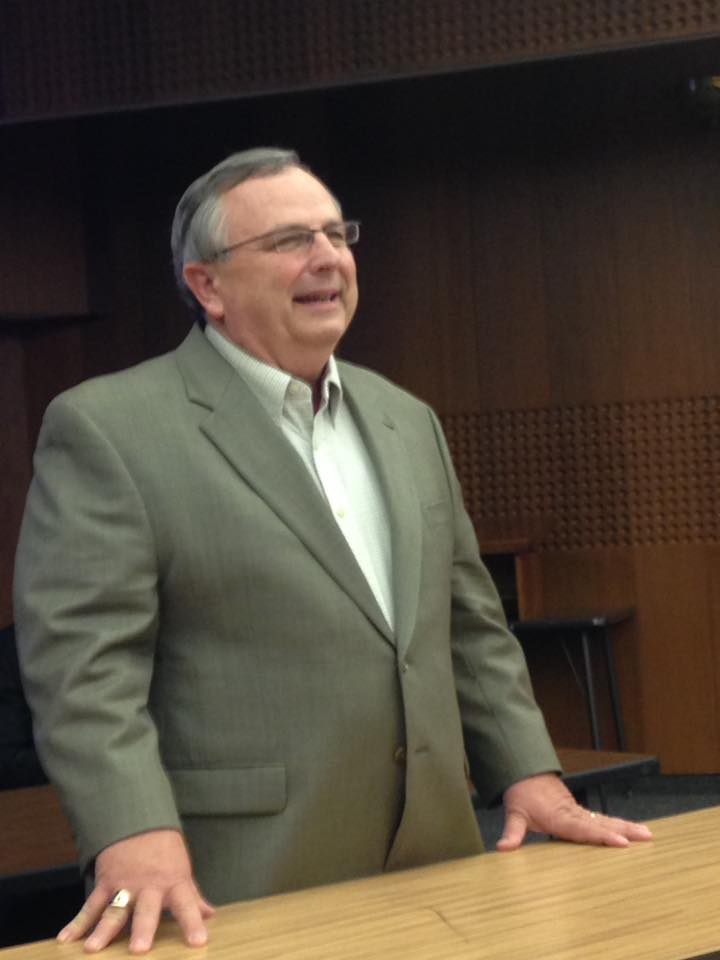
In Partial Fulfillment
of the Requirements for the Course
GBIB 688 – Jewish Background of the Gospels
By
Chris Walsh
April 4th, 2017
Why do Jewish business people appear to prosper more financially than Christians?
This semester, (Spring 2017) I had the privilege of hearing Rabbi Pesach Wolicki from Jerusalem.
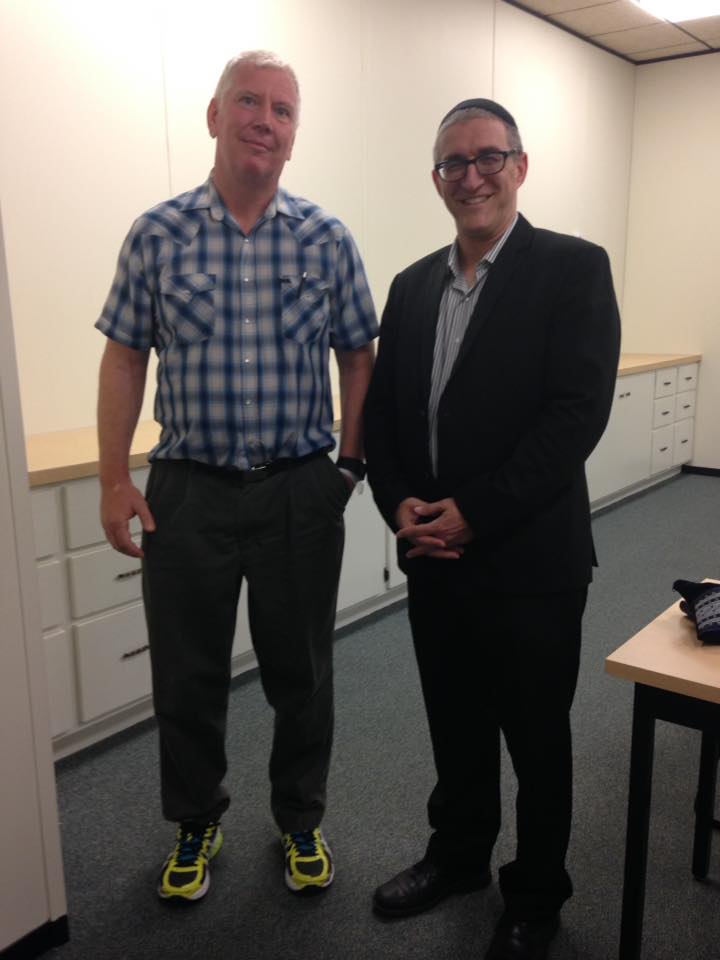
He spoke on many things, but the thing that he was invited to speak on was some of the things that affect Christians and Jews from an Orthodox Jewish perspective. I sat enthralled as I listened to him and his incredible consecration to the word of God.
I saw some things in Jewish faith practices, which I believe could help us as Christians.
As many of you know I’ve traveled across North America for many years and I’ve been intrigued with the Christian spiritual practices of many Native Americans. I have developed relationships with many Native American leaders on purpose, and I found that they hold often deep revelation of truth from the scriptures that I had never heard taught elsewhere.
(https://chrisaomministries.wordpress.com/2014/01/14/reading-the-bible-with-red-mans-eyes/
https://chrisaomministries.wordpress.com/2013/12/14/prayer-as-incense/
https://wordpress.com/post/chrisaomministries.com/13091)
I have also held a weekly Bible study for business leaders on and off for over nine years now.
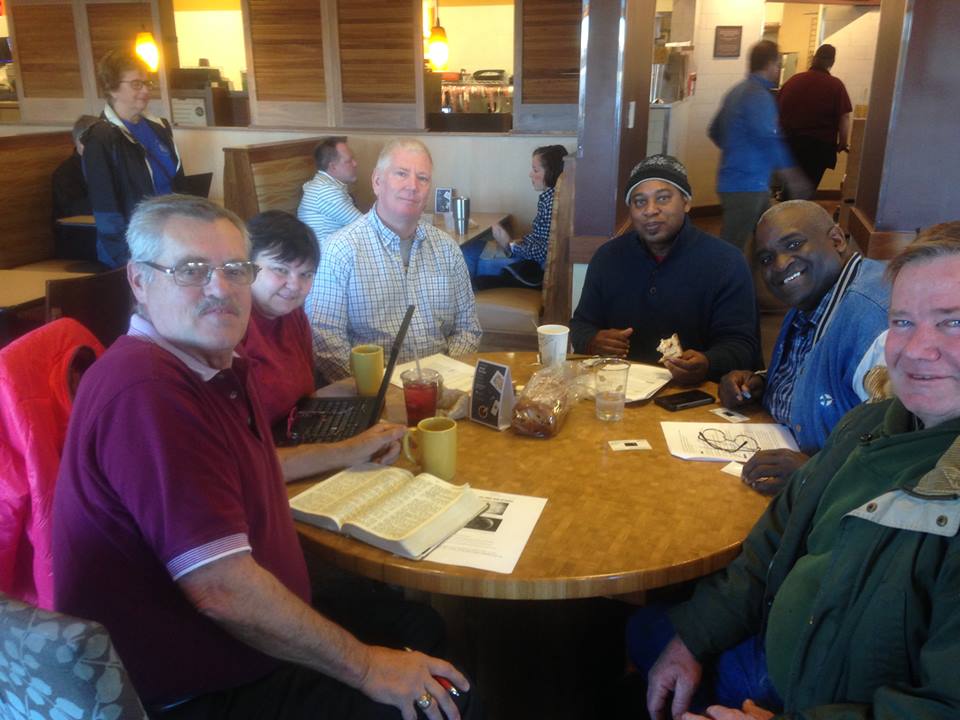
The obvious question for Christian business leaders is how do we prosper financially God’s way?
Deuteronomy 8:18 (AKJV)
18 But thou shalt remember the Lord thy God: for it is he that giveth thee power to get wealth, that he may establish his covenant which he sware unto thy fathers, as it is this day.
Clearly, we see prosperity promised in the Scripture but the question is: how do we actually achieve it and implement it in our lives, families and businesses?
I’ve read many, many books on Christian leadership and business ethics seeking the answer to this question (I believe the answer lies in Christian Leadership, and am working on a great book on that topic entitled: Leadership in the River, that I will publish when I’m done).
One little book that was given to me some years ago by the author named Craig Hill entitled: “Five Wealth Secrets 96% of Us Don’t Know[1]”. It had a very interesting story in at that stuck with me. In the story a minister was interviewing a Christian accountant whose clientele was primarily either Christian or Jewish businessman.
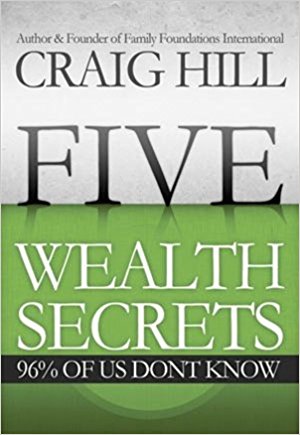
I quote from Craig Hill’s book:
“Another friend of mine, Earl Pitts, told me of an interesting conversation he had with his Jewish accountant many years ago. After discussing his taxes, Earl queried if he might ask the man a personal question. The accountant was happy to oblige him.
Earl then asked, “I assume that you have both Jewish and Christian clients. Am I right?”
“Of course,” answered the accountant.
“Tell me honestly, continued Earl, “Who is more prosperous? Who has larger financial statements; your Jewish clients, or your Christian clients?”
As one might suspect, the accountant chuckled and responded, “My Jewish clients, of course, probably about ten to one in magnitude.”
Earl then asked, “One more question. Being Jewish yourself what is your personal opinion as to why that is?
The accountant mused for a moment, then picked up Earl’s Christian Bible, which he had with him and said something like the following: “You Christians tend to live out of the back of this book, while we Jews tend to live out of the front of the book. Unfortunately for Christians, most of the financial principles are in the front of the book. So we Jews believe in and abide by these principles, while you Christians seem to ignore them and discount them because they are “Old Testament.” However, I believe that the adherence to these principles is what causes people to prosper financially.”
Since I first heard this from my friend Earl, I have heard several times from Jewish friends explanations similar to the following: “I don’t really fully understand your Christian beliefs, but from what I understand, it seems that most Christians have the idea that they can violate the basic principles described in the Bible, and then because of the grace of God extended by the sacrifice of Christ, they are forgiven, and everything will be alright. Thus it seems to me that most Christians feel that they don’t have to pay any attention to the financial principles explained in Proverbs, or the rest of the ‘Old Testament’ because these are a part of ‘the Law.’ Since Christians are ‘in Christ,’ and no longer ‘under the Law,’ they feel no need to abide by these Old Testament financial principles. On the contrary, we Jews believe that we actually have to practice and abide by these principles in the Law. So, in my opinion and experience, abiding by the biblical financial principles produces much greater financial prosperity than ignoring and discounting them.”[2]
This story stuck with me for many years as we have sought the Lord for prosperity and wisdom, reading our Proverbs of the day, and doing what we needed to do to see steady financial increase in our day to day business operations, as we did what we felt we had to do in order to survive in the business world during the years that I’ve owned and operated several companies.
Clearly this story is relevant here in Tulsa, Oklahoma. Just to name a few Jewish families here: The Kaisers, The Zarrow family, the Siegfried’s and the Schusterman’s, clearly these families have not only become wealthy, but have contributed, and continue to contribute philanthropically to the ongoing development of the city wonderfully! Perhaps there are Christians here as wealthy, but I have not yet been made aware of them.
But like a jigsaw puzzle, God began to put the pieces together on why this truth was working for the Jewish people and didn’t appear to be working as well for Christians.
I’ve been studying faith for many years, and I truly believe that faith will move the hand of God in our lives. (https://wordpress.com/post/chrisaomministries.com/13661)
As I studied faith and confession for over 25 years now, I have been looking for creative ways to see how our personal faith can change the world that we live in.
I had the privilege of hearing Navajo elder Elson Bennett speak at Dr. Negiel Bigpond’s church March 31st of 2016.
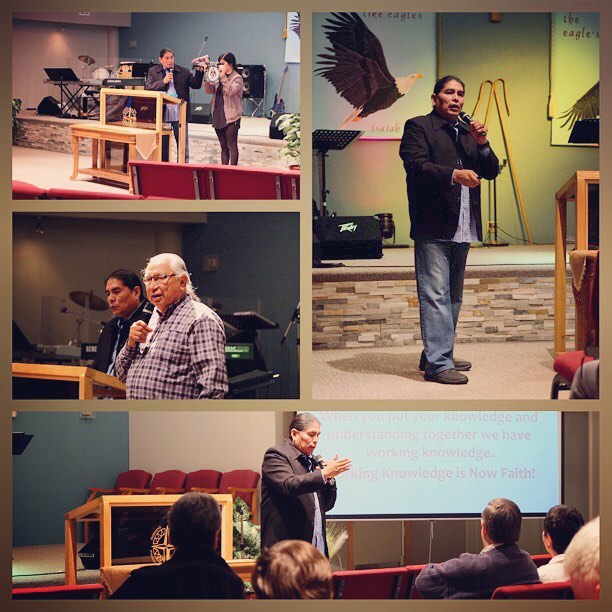
He spoke on Joshua chapter one, but was I found it very interesting what he saw in those verses.
Lets look at them:
God’s Charge to Joshua
1 Now it came about after the death of Moses the servant of the Lord, that the Lord spoke to Joshua the son of Nun, Moses’ [a]servant, saying,2 “Moses My servant is dead; now therefore arise, cross this Jordan, you and all this people, to the land which I am giving to them, to the sons of Israel. 3 Every place on which the sole of your foot treads, I have given it to you, just as I spoke to Moses. 4 From the wilderness and this Lebanon, even as far as the great river, the river Euphrates, all the land of the Hittites, and as far as the Great Sea toward the setting of the sun will be your territory. 5 No man will be able to stand before you all the days of your life. Just as I have been with Moses, I will be with you; I will not fail you or forsake you. 6 Be strong and courageous, for you shall give this people possession of the land which I swore to their fathers to give them.[3]
Pastor Ellson explained that in this initial charge given to Joshua, we see the God side of the covenant. [4] God Almighty, the Holy One who inhabits eternity, has spoken, and He cannot lie.
Now let’s look at the next couple of verses:
7 Only be strong and very courageous; [b]be careful to do according to all the law which Moses My servant commanded you; do not turn from it to the right or to the left, so that you may [c]have success wherever you go. 8 This book of the law shall not depart from your mouth, but you shall meditate on it day and night, so that you may [d]be careful to do according to all that is written in it; for then you will make your way prosperous, and then you will [e]have success. 9 Have I not commanded you? Be strong and courageous! Do not tremble or be dismayed, for the Lord your God is with you wherever you go.”
The man side of the covenant
Notice the ‘man-side’ of these promises here. The promises of God are not automatic, but require an obedient, disciplined life from the person to whom they are given. Joshua was commanded:
- To do all the Law of Moses (no small task in and of itself!)
- Do not compromise, fully obey. (Do not turn to the left or the right)
- Constantly speak the promises (Do not let them depart from your mouth) 2 Corinthians 4:13 And since we have the same spirit of faith, according to what is written, “I believed and therefore I spoke,” [a] we also believe and therefore speak. “In other words, what you believe, you will speak. If you believe the Word, you will speak it. If you speak it, you will eventually believe it, and if you believe it you will be bold to speak it.”[5] “Jesus said that whosoever shall say, believe, doubt not, in his heart, but believe what he says will come to pass, he shall have whatsoever he says.” (Mark 11:22-24)[6]
I have taught on this extensively over the years: https://wordpress.com/post/chrisaomministries.com/9174
- Constantly think and meditate upon them (meditate day and night)
- Do what the law commands (Don’t just think and talk about it)
Without going any deeper into the Word of God, these five things acted upon, will give any person something to do all day long. Clearly it is in DOING these things, will cause God to act in our lives, making our way prosperous, and granting us success. Knowing God is with us, gives us courage, and we overcome our fears.[7]
Pastor Bennett went on to say that this was the problem that many Christians face.
While many of us are very disciplined as we read our Bible and pray every morning, seeking God for His direction and blessing for the day.
Yet, he explained, as the day unfolds, in the business of the day the things that we had actually prayed and believed God for in the morning, we were negating later in the day. Why? Because we became tired, and our words and actions later in the work day were no longer in line with the word of God that we had read, prayed, and confessed that morning.
We were no longer meditating upon the Word of God, and keeping it in our mouths, rather, we were meditating upon our problems, challenges, and responding to the pressures and responsibilities of the moment.
How well I personally understand that principal running a construction company!
I would seek God in the morning and read my Bible carefully journalling my thoughts that came to me in prayer, and I would be peaceful and blessed entering into the workplace.
Suddenly, it was like the law of the jungle would kick in as soon as I set foot on my job sites and went to work!
Men, equipment and building materials moved rapidly, and problems arose, and had to be solved immediately, if projects were to be completed on time, on schedule.
Thoughts of my prayer and confession of God’s word succumbed to the duty of the moment and the very real responsibilities that need to be fulfilled in order to make sure there was money in the bank for payroll each week and invoices due that week.
Back to the teaching from Rabbi Wolicki: remember I was looking for ways from the word of God that appeared to be causing God to prosper Jewish businessman more than Christians.
Rabbi explained that what was pivotal in the practice of the Jewish faith was the Exodus account where God delivered the Jewish people who had been slaves and bondmen in Egypt from the hand of Pharaoh. And that they remembered this account throughout the day. He said they probably recited it in their various daily prayers and liturgies, at least fifteen times a day!
Since many Jews serve as doctors, medical professionals and business people, He describes how many of these movers and shakers honored afternoon prayer: https://www.chrisaomministries.com/the-amidah-prayer/ by setting an alarm on thier phone and deliberately scheduling prayer time every day between 3-3:30PM to recite Amidah, the standing prayer.
They did this so often, that they actually saw themselves personally in the Word of God, living out the Exodus story every day.
He explained that orthodox Jews so deeply saw themselves in the account that it wasn’t just a history lesson to them but they saw them self as a people currently that had been delivered practically for the hand of Pharaoh of Egypt.
Deuteronomy 6:12 then beware lest thou forget the Lord, which brought thee forth out of the land of Egypt, from the house of bondage.
They saw themselves in the word of God. This is exactly what we seek to do as Christians!
Read with me:
James 1:21 KJV
Wherefore lay apart all filthiness and superfluity of naughtiness, and receive with meekness the engrafted word, which is able to save your souls.
Even as the Word became flesh in Jesus, this verse in James shows that the word becomes flesh in us, as we receive the engrafted word.
That as we pray and meditate upon the Word of God over the years, we take on the character of Jesus, as we see ourselves in and through the promises of God.
There is a process in this, as our very thinking processes change that the Bible calls the transformation or renewal of our mind, as Holy Spirit writes His laws deep within us upon the fleshly tablets of our hearts.
I believe this process can be accelerated as we deliberately meditate upon and confess the Word of God, even if we are not yet acting upon the very word we are confessing. Please read and understand the difference from our confession UNTO Faith, becoming our confession OF Faith.
God, who is Holy, hears His Word muttered from our lips in our prayer and meditation, and sees our desire to want to do right, and in His mercy and grace, He first changes us, then in His great love, brings the provision of His promise into our lives, and in gratefulness, we thank Him and give Him glory.
Many of you remember how I’ve taught about the confession of faith versus the confession onto faith, and how Holy Spirit works with His Word in our lives as we confess things that are not currently happening in our life. He takes the truths that are eternally written in heaven and then writes them on the fleshly tablets of our heart and we become changed from faith to faith, strength to strength and glory to glory becoming more like Jesus in character, thought and action, day by day.
Rabbi spoke about the daily practices of a strict Orthodox Jew and he explained the frontlets they wore on their head when they prayed, and upon their right arm. He described the four portions of Scripture inside of these, and how they were made of leather, so well crafted, they appear to be molded plastic. This cause me to research and read of this practice, as one seeking to understand the world Jesus lived in His earthly ministry, as a Jew amongst Gods covenant people. [8]
As rabbi spoke of the liturgical prayers prayed daily by devout Jews, he introduced me to ‘The Amidah Prayer’[9], or as it is sometimes called, ‘The Eighteen’. [10]
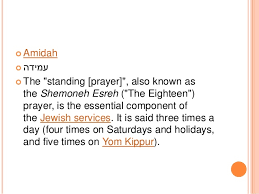
As I have continued my research, I came upon this quote by Dr. David Bivin, in his interview on CBN:
“Every Jew was obligated to pray the Eighteen Benedictions daily; however, in times of emergency, one was permitted to pray a shortened form of the Eighteen, such as the Lord’s Prayer.
Rabbi Eliezer, a younger contemporary of Jesus, taught this abbreviation of the Eighteen: “May your will be done in heaven above, grant peace of mind to those who fear you [on earth] below, and do what seems best to you. Blessed are you, O LORD, who answers prayer.” Note the phrases “your will be done” and “in heaven above … [on earth] below” as in the Lord’s Prayer. Also note the parallel between “grant peace of mind” in the prayer Eliezer taught and “deliver us from evil” in the prayer Jesus taught.”[11]
As I read Dr. Young’s precious book on the topic of the Disciples, or “The Lord’s Prayer”,
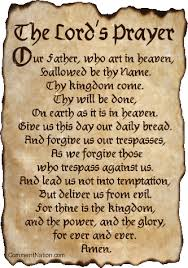
I find this interesting entry in his notes: “The early Christians were instructed to pray the prayer three times daily (Didache 8:2-3)”[12] I find this interesting, as rabbi told us, that devout Jews pray ‘The Amidah’ three times each day, although changes are made, depending upon the calendar of the various feasts and festivals.
Professor Biven succinctly summarizes the prayer into 19 covenant blessings that I would encourage students to study, exactly as rabbi explained to us in lecture here at Oral Roberts University.
The Offering Prayer
He said this prayer was called “the offering prayer” because it was to be prayed in the afternoon somewhere between two and four in the afternoon and that the time taken to pray these 19 blessings took about 15 or 20 minutes out of a busy workday. In the business world if one is a lawyer or accountant or executive, time is money: time taken out of the most productive part of one’s afternoon was considered and understood in the Jewish tradition to literally be an offering on to God.
Suddenly answers I sought in the two pieces of jigsaw puzzle of Gods truth, fit together perfectly.
I saw how we as Christians were seeking first the kingdom of God and his way of doing things in the morning but in the business of the day, even though we endeavor to be led by the Holy Spirit we are missing it.
We get weary in well doing throughout the day, so that the things that we had prayed and actively believed God’s direction for in the morning were not coming to pass, because we were just responding to the responsibilities of the pressures of the day.
The orthodox Jews that deliberately, intentionally, on purpose discipline himself and schedule themselves to take time from the busyness of their day to invoke God into their workplace: His presence, His promises, His mercy, His wisdom, His plan, His miracles, His prosperity, His knowledge and understanding, in their business, each and every day, are being radically blessed by God, on a magnitude of ten times more than us Christians!
They do this deliberately and intentionally every single business day!
Sadly I see how we boast in our personal relationship with Jesus and our spirit led lifestyles but truthfully I don’t believe we are as spirit led as we’d like to believe we are.
God and his word are one: He will never break his promises, so in the business of the day as one is beginning to wind down in an attempt to finish each day strong, I wonder what would happen if we deliberately scheduled an appointment with the King just like we would any other business appointment and then took fifteen or twenty minutes between two and three in the afternoon and prayed on purpose the promises of God and the blessings of God or even in faith the Amidah prayer, with all of the eighteen or nineteen covenant blessings that God promised to the Jewish people?
Have we not been grafted into the same covenant? [13]
As I read the Amidah, and learn how the devout would often spend an hour preparing their heart before they would begin to talk to God, I see a radical devotion as dedicated and passionate as my own, and perhaps more disciplined and obedient than I.
Romans 11:17 But some of these branches from Abraham’s tree—some of the people of Israel—have been broken off. And you Gentiles, who were branches from a wild olive tree, have been grafted in. So now you also receive the blessing God has promised Abraham and his children, sharing in the rich nourishment from the root of God’s special olive tree.
Romans 11:18 But you must not brag about being grafted in to replace the branches that were broken off. You are just a branch, not the root.
Jesus, through His death, burial, and resurrection from the dead, has forgiven us, adopted us, and grafted us into His covenant with the Jewish people, as branches, not roots. The church in Gods eyes, will never replace Israel and the word of God, rather we clearly are to lovingly respect each other, and clearly it brings Him great pleasure when this occurs. We see in the book of Revelation, twenty-four elders around the throne, could these be twelve elders of Israel, and twelve apostles from the church?[14]
For the purposes of this paper, I have simply included a copy of ‘The Amidah’ to be used for our own personal devotional times.https://www.chrisaomministries.com/the-amidah-prayer/
Since, historically, ‘replacement theology’ has brought historic horrors upon the Jewish people from ‘Christians’ I have not changed it from the way Dr. Young has recorded it in his book.
As a Christian, as I have prayed these prayers before God, I see only one key difference between what they believe, and what we believe. They are praying for Messiah to come, we believe Jesus is the Messiah that He has already come, and will come again to judge both the living and the dead.
Yet, He will come to Jerusalem! The City of God, capital of the whole earth!
I know so little about the ways and worship of the Jewish people, but I began to look for examples in the New Testament of afternoon prayer. I found two:
Acts 3:1 [Peter Heals a Crippled Beggar] Peter and John went to the Temple one afternoon to take part in the three o’clock prayer service
Acts 10:3 One afternoon about three o’clock, he had a vision in which he saw an angel of God coming toward him. “Cornelius!” the angel said.
Acts 10:30 Cornelius replied, “Four days ago I was praying in my house about this same time, three o’clock in the afternoon. Suddenly, a man in dazzling clothes was standing in front of me.
Seems both this miracle, and this angelic visitation both occurred at the time of afternoon prayer.
Conclusion:
So, being as I am, a man of practical faith, I’ve decided what I am going to do with this particular study. It has been said that it only takes 30 days to form a new habit. What I will do, over the next couple of weeks is teach this topic at my weekly breakfast meeting with business leaders, creating a 30 day challenge. Asking the people who attend to set an appointment with God every afternoon at 3PM (It will be 3:30 for me, as I am in Dr. Young’s lecture Tuesday and Thursdays), and deliberately record what God does in lives this month. Should be exciting! (Truthfully, when I checked back, not One of us actually completed this challenge!)
Let’s pray: Father God I’ve given you my life and Lord Jesus I’ve submitted to your Kingship your Lordship and your Sovereignty. Lead me, guide me. How well I know that I need you. I asked that you would give me the courage to deliberately schedule time with you in the middle of my workday to set an appointment and keep it each and every workday. How well I know I need Your grace to accomplish this.
According to George Robinson, a Jew need not invent his own prayers to God [although there is space within their liturgy to do so at points in the Amidah][15]
They deliberately cite Maimonides referring to the two most important prayers in the Jewish liturgy, Maimonides writes, “The first thing you must do is turn our thoughts away from everything else when you recite the Shema or Amidah…When you are engaged in the performance of religious duties, have your mind concentrated entirely on what you are doing.” (Guide for the Perplexed, 3.t1). [16] In fact, because the Amidah was considered the equivalent of a sacrificial offering for many years [until roughly the 9th century c.e.].
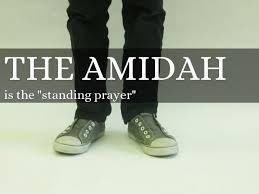
THE AMIDAH PRAYER
The prayer is as follows:
Acknowledging God’s Character
The God of Creation and Giver of Love
Blessed are You, O Lord our God and God of our ancestors, God of Abraham, God of Isaac, and God of Jacob, the great, mighty, and revered God, the most high God, who graciously gives loving-kindness. You create all things; You remember the pious actions of the patriarchs and in love will bring a redeemer for their children’s children for Your Name’s sake. O King, Helper, Savior and Shield. Blessed are You, O Lord, the Protector of Abraham.
The God Who Works Miracles. You are Lord, all-powerful forever, You resurrect the dead; You are mighty to save. You sustain the living with loving-kindness, resurrect the dead with great mercy, support the falling, heal the sick, release the prisoners, and uphold Your faithfulness to them that sleep in the dust. Who is like You, Lord of mighty acts and who resembles You, O King, who orders death and restores life, and causes salvation to come forth? And You are faithful to resurrect the dead. Blessed are You, O Lord, who resurrects the dead.
“Holiness” and the Name of God. We will sanctify Your Name in the world even as they sanctify it in the Heavens, as it is written by the hand of Your prophet: And they called one unto the other and said, Holy, Holy, Holy is the Lord of Hosts: the whole earth is full of His glory. Those over against them say, Blessed—Blessed by the glory of the Lord from His Place. And in Your Holy Words it is written, saying, The Lord reigns forever, you God, O Zion, unto all generations. Praise you the Lord. Unto all generations, we will proclaim Your greatness, and to all eternity we will tell of Your holiness. Your praise, O our God, shall not cease from Your mouth forever, for You are a great and holy God and King. Blessed are You O Lord the holy God. You are holy, and Your Name is holy and the holy ones praise You every day. Blessed are You, O Lord, the holy God
.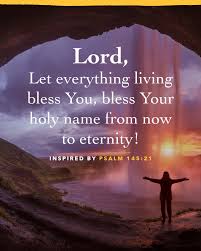
Seeking Spiritual Insight and Awakening
Request for Understanding. You favor people with knowledge and teach human beings understanding. O favor us with knowledge, understanding, and applied wisdom from You. Blessed are You, O Lord Gracious Giver of knowledge.
Returning to God for Repentance. Make us return, O or Father, unto Your Torah. Draw us near; our King, back into Your service, and bring us again in perfect repentance into Your presence. Blessed are you, O Lord, who delights in repentance.
Request for forgiveness. Forgive us, O our Father, for we have sinned. Pardon us, O our King, for we have transgressed, because You do pardon and forgive. Blessed are You, O Lord, who is gracious and forgives a multitude of wrongs.
Requesting Divine Help for Personal Needs
Request for Freedom from Affliction. Look upon our affliction and fight for our cause. Redeem us speedily for Your Name’s sake because You are a mighty Redeemer. Blessed are You, O Lord, the Redeemer of Israel.
Request for Healing. Heal us, O lord, and we shall be healed. Save us and we shall be saved. You are our praise. Provide a perfect healing for all our wounds; because You, almighty Kings, are a faithful and merciful physician. Blessed are You, O Lord, who heals the sick of Your people Israel.
Request for Financial Prosperity. Bless this year for us O Lord our God, together with every kind of the produce there is from it, for our well being. Provide a blessing upon the face of the earth. Satisfy us with Your goodness, and bless our year like other good years. Blessed are You, O Lord, who blesses the years.
Seeking divine help for the Jewish People, Society, and Community Needs
Request to Gather the Exiles of Israel to Their homeland. Blow the great shofar horn of our freedom. Raise the standard to gather our exiles, and bring us together from the four corners of the earth. Blessed are You, O Lord, who gathers the dispersed of Your people Israel.
Prayer Seeking the Establishment of the Kingdom of Heaven. Restore our judges as at the beginning, and our counselors as in former times. Remove from us sorrow and sighing. Reign over us, O Lord, You alone, in loving-kindness and tender mercy and justify us in judgment. Blessed are You O Lord, the King who loves righteousness and justice.
Request for Protection from Enemies. Let there be no hope for slanders and let all wickedness perish as in a moment. Let all Your enemies be speedily cut off. May You root out, break off, bring down, and cause the ruin of the reign of evil speedily in our days. Blessed are You, O Lord, who breaks the enemies and humbles the arrogant.
Request for Mercy upon God’s People.
Seeking Deliverance and Restoration for the Divine Plan and Future Hope
- Request for the Rebuilding of Jerusalem. With tender mercies return to Jerusalem, Your city, Your presence will abide in her midst as You have promised. Rebuild her soon in our days as an everlasting building and speedily establish in her the throne of David. Blessed are You, O Lord, who builds Jerusalem.
- Prayer for the Branch of David. Speedily cause the Branch of David, Your servant, to spring forth. With your saving power, raise up the horn of his strength because we wait for Your salvation all the day. Blessed are You, O Lord, who causes the horn of salvation to spring forth.
- Request for Prayers to Be Answered. Answer our voice, O Lord our God. Free us and have mercy upon us, and accept our prayer in compassion and favor because You are God who answers prayers and supplications from Your presence, O our King, turn us not empty away, because You hear with mercy the prayer of Your people Israel. Blessed are You, O Lord, who answers prayer.
- Request to Restore Temple Service. Accept with divine favor, O Lord our God, Your people Israel and their prayer. Restore the worship to the inner sanctuary of Your house. With compassion receive in favor both the offerings of Israel and their prayer, and may the worship of Your people Israel be ever acceptable to You. Let our eyes witness Your return with compassion to Zion. Blessed are You, O Lord, who restores His divine presence to Zion.
- Giving of Thanks to God for His Mercy. We give thanks to You, for You are the Lord our God and the God of our ancestors forever and ever. You are the Rock of our lives, the Shield of our salvation throughout every generation, we will give thanks to You and proclaim Your praise for our lives, which are committed into Your care, and for our souls, which are under Your charge and for Your miracles which are daily with us, and for Your wondrous acts and your benefits, which are worked at all times, evening, morning and noon. O You who are all-good, whose mercies do not fail; You who are all merciful, whose loving-kindnesses never cease, we have hope in You. Because of all this, let Your name, O our King be blessed and be highly exalted continually, forever and ever. All living beings will give thanks to You, Selah, and they will praise Your name in truth, the God of our Salvation and of our help, Selah! Blessed are You, O Lord, the Good One is Your name, and so to You it is fitting to give praise.
- Request for Peace. Give peace, well-being, blessing, grace, loving-kindness and mercy to us and to all of Israel, Your people. Bless us, O our Father, even all of us together, with the light of Your countenance because by the light of Your countenance You have given us, O Lord our God the Torah of life, the love of mercy and righteousness, blessing, loving-kindness life and peace. May it be good in Your sight to bless Your people Israel at all times and in every hour with Your peace. Blessed are You O Lord, who blesses Your people Israel with peace.[17]
Bibliography
Foundation, The Lockman. Holy Bible: New American Standard Bible – Nasb 1977 (Includes Translators’ Notes). publication place: The Lockman Foundation, 2013.
Young, Brad. 2007. Meet the rabbis: rabbinic thought and the teachings of Jesus. Peabody, Mass: Hendrickson Publishers.
Young, Brad. 1984. The Jewish background to the Lord’s Prayer. Austin, Tex: Center for Judaic-Christian Studies
Hill, Craig S. Five Wealth Secrets 96% of Us Don’t Know. Littleton, Colorado: Family Foundations International, 2012.
Capps, Charles. 1987. Dynamics of Faith and Confession. Tulsa, Okla.: Harrison House.
Faley, Roland J. 2011. Joshua ; Judges. Collegeville, Minn: Liturgical Press.
Robinson, George. 2000. Essential Judaism: a complete guide to beliefs, customs, and rituals. New York: Pocket Books.
Maimonides, Moses. 1961. The guide for the perplexed. New York: Dover Publications.
Comfort, Philip Wesley. 2005. Cornerstone biblical commentary. Carol Stream, Ill: Tyndale House Publishers.
DUNN, J. D. G., & ROGERSON, J. W. (2003). Eerdmans commentary on the Bible. Grand Rapids, MI, W.B. Eerdmans.
Other Sources:
Bivin, David, Jerusalem Perspective, http://www.jerusalemperspective.com/3643
Henshke, David. 2016. “BETWEEN BLESSINGS AND PRAYER: ON THE HISTORY OF THE AMIDAH PRAYER.” Tarbiz 84, no. 3: 7. Publisher Provided Full Text Searching File, EBSCOhost (accessed April 22, 2017).
[1]Craig S. Hill, Five Wealth Secrets 96% of Us Don’t Know (Littleton, Colorado: Family Foundations International, 2012),
[2]Craig S. Hill, Five Wealth Secrets 96% of Us Don’t Know (Littleton, Colorado: Family Foundations International, 2012), p4-6
[3] The Lockman Foundation, Holy Bible: New American Standard Bible – Nasb 1977 (Includes Translators’ Notes) (publication place: The Lockman Foundation, 2013), 1
[4] “In the beginning of chapter 1, God’s charge to Joshua introduces most of the themes of the book. God’s sovereignty and God’s initiative are highlighted…The beginning of the charge to Joshua gives three promises (1)all the land would be theirs. (2) No enemy would withstand them. (3) God would be with them and never forsake them.”
[4]Comfort, Philip Wesley. 2005. Cornerstone biblical commentary. Carol Stream, Ill: Tyndale House Publishers.
[5]Charles Capps(1987). Dynamics of faith and confession. Tulsa, Okla, Harrison House. p. 46
[6] Ibid, p. 127
[7] First, the law (Torah) plays a normative role in the book. This can be seen from the very outset. Joshua’s (and Israel’s) relationship to Yahweh is based on the law and is crucial for Israel’s success. Obedience or disobedience to the law determines success or failure.
DUNN, J. D. G., & ROGERSON, J. W. (2003). Eerdmans commentary on the Bible. Grand Rapids, MI, W.B. Eerdmans.
[8] http://www.jewishvirtuallibrary.org/tefillin
[9]“Thus, the daily Amidah originally consisted of eighteen benedictions (although there appear to be nineteen) – for the blessing for peace was not part of the original Amidah. However, when the blessing of peace came to be considered an integral part of the Amidah, the blessings for the restoration of Jerusalem and the Davidic dynasty were combined into one benediction in the land o f Israel in order to retain the original number o f eighteen, whereas in Babylonia the blessing against heretics was explained as a later addition.” Henshke, David. 2016. “BETWEEN BLESSINGS AND PRAYER: ON THE HISTORY OF THE AMIDAH PRAYER.” Tarbiz 84, no. 3: 7. Publisher Provided Full Text Searching File, EBSCOhost (accessed April 22, 2017).
[10] I had to learn about this, so immediately read: Brad Young. Meet the Rabbis: Rabbinic Thought and the Teachings of Jesus. Peabody, Mass: Hendrickson Publishers, 2007.p145-155
[11][11] http://www1.cbn.com/biblestudy/the-amidah-prayer
[12] Young, Brad. 1984. The Jewish background to the Lord’s Prayer. Austin, Tex: Center for Judaic-Christian Studies
[13] Ibid NASB
[14] Revelation chapters 4,5,19
[15]George Robinson. 2000. Essential Judaism: a complete guide to beliefs, customs, and rituals. New York: Pocket Books.17
[16]Moses Maimonides. 1961. The guide for the perplexed. New York: Dover Publications.
[17] Young, Brad. 2007. Meet the rabbis: rabbinic thought and the teachings of Jesus. Peabody, Mass: Hendrickson Publishers.


